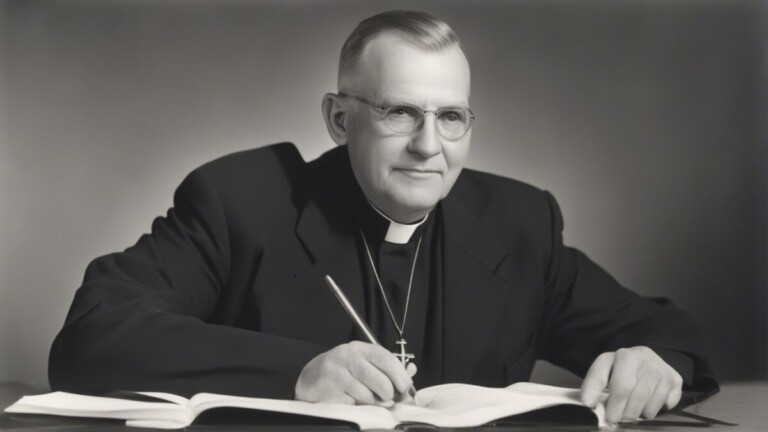The Origins of Victor Wierwille
Victor Paul Wierwille was born in 1916 in Ohio. He was an ordained minister who initially followed mainstream Christian teachings. Over time, Wierwille began to grow disillusioned with traditional religious doctrines and took steps to carve out a distinctive interpretation of the Bible. He pursued formal theological education and even studied under other spiritual leaders but gradually distanced himself from established Christian practices.
“In the beginning, Victor Wierwille seemed like any other Christian minister, but he eventually broke away due to what he perceived as gaps in mainstream Christian doctrine,” said theologian Robert J. Miller in an interview with a religious publication.
Formation of The Way International
In 1955, Wierwille founded The Way International, purportedly after receiving a divine revelation. The organization claimed to offer a more accurate interpretation of the Bible, one that was purged of all doctrinal errors that had crept into mainstream Christianity. It also emphasized the empowerment of individual believers through the understanding of “The Word” (a term for the Bible), and sought to create a community of ‘like-minded’ individuals.
“Wierwille’s teachings drew a lot of people who felt dissatisfied with mainstream Christian practices,” noted religious scholar Karen Armstrong.
Teachings and Practices
The Way International diverged significantly from orthodox Christian beliefs. It rejected the Trinity, questioned the divinity of Jesus, and promoted speaking in tongues as evidence of a believer’s spirituality. Additionally, it encouraged rigorous Bible studies that often involved scrutinizing Greek and Hebrew texts to understand their original meanings. The organization also offered a series of classes known as “Power for Abundant Living” that were intended to serve as both theological instruction and self-help sessions.
“Victor Wierwille’s interpretation of the Bible was idiosyncratic, to say the least. He went so far as to question fundamental tenets that most Christians take for granted,” said Professor of Religion Mary K. Davis.
Controversies and Criticisms
The Way International has been subject to numerous controversies over the years. Critics have accused it of being a cult due to its unorthodox teachings and the authoritarian manner in which it was run. Additionally, allegations of financial mismanagement and exploitation have also marred its reputation. Wierwille himself faced accusations of plagiarism, as some claimed that he borrowed heavily from the works of other religious figures without proper attribution.
“Behind the facade of spirituality, The Way International had several issues that could not be ignored, including allegations of financial misconduct and manipulative practices,” reported the New York Times.
Legacy
Victor Wierwille passed away in 1985, but the organization he founded continues to exist, albeit with a smaller following. While it has undergone several reforms and changes in leadership, the core teachings remain influenced by Wierwille’s original vision. Its history serves as a complex case study in the intersection of faith, individual interpretation, and the challenges posed by unorthodox religious movements.
“The Way International may not be as prominent as it once was, but its impact on alternative Christian movements in America remains significant,” concluded religious historian Elaine Pagels.
